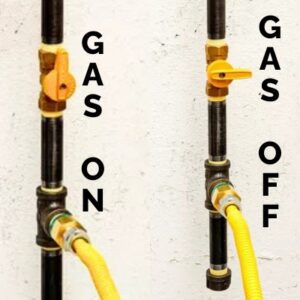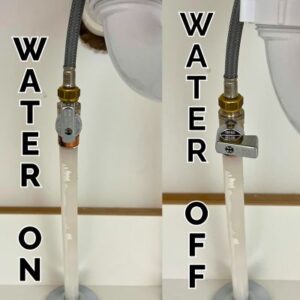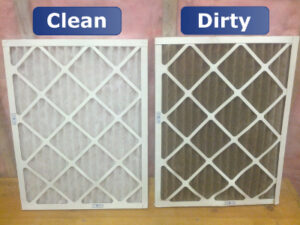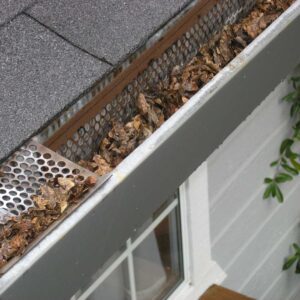Being a homeowner is a very exciting thing, but it also comes with a lot of added responsibilities. There’s no longer a landlord to call when something goes wrong or needs repair – that now falls on you! There is an endless list of things every homeowner should know when it comes to the care and maintenance of their home, but below are five essential things every homeowner should know when it comes to their home.
How To Turn Off Utilities
One of the first things you should do when you move into a new home is familiarize yourself with the shutoffs for gas, electricity, and water within your home. This will save you headaches down the road in the event of an emergency or when you are trying to do work on your home.
 Gas: Each gas-using appliance has its own shutoff valve on the pipe to which it is connected, and these individual shutoffs should be used in most instances. When the shutoff valve runs parallel to the pipe, that means it is on. When it runs perpendicular to the pipe, that means it is off.
Gas: Each gas-using appliance has its own shutoff valve on the pipe to which it is connected, and these individual shutoffs should be used in most instances. When the shutoff valve runs parallel to the pipe, that means it is on. When it runs perpendicular to the pipe, that means it is off.
In emergency situations, you may need to shut gas off to the entire house (but this should only be done in emergency situations). The main gas shutoff for your home is on the meter outside. There will be a shutoff valve running parallel with the pipe that is running to the ground. Use a wrench to turn it until the valve is crosswise to the pipe. If you turn gas off at the meter, do not turn it back on yourself – call the gas company to reconnect service.
Electricity: The breaker box in your mechanical room is what you will use in most instances to cut electricity to certain rooms, outlets, and fixtures and when you don’t have power to individual switches or outlets (most commonly caused by a tripped breaker). When you move in, familiarize yourself with the breakers and make sure they are labeled correctly. To turn a breaker off, simply switch it from the on position to the off position, then flip it back to the on position when you are ready to restore power. If you have a breaker trip, flip it off first then back on to reset it.
In emergency situations where you need to turn power off to the entire home, the main circuit breaker is located in the electrical service panel on the outside of your home.
 Water: Like gas appliances, water-using items such as sinks and toilets have individual shutoffs that can be used to cut water service to that item. Look for the shutoffs underneath sinks and the toilet tank. If your shutoff is a knob, turn it clockwise until it is tight to turn the water off. Newer homes like the ones Liberty Homes build use smaller dials similar to what you see on a gas line. For those, you need to turn it 1/4 to the right to turn it off (like a gas line, on is when the dial is parallel to the pipe and off when it is perpendicular to the pipe).
Water: Like gas appliances, water-using items such as sinks and toilets have individual shutoffs that can be used to cut water service to that item. Look for the shutoffs underneath sinks and the toilet tank. If your shutoff is a knob, turn it clockwise until it is tight to turn the water off. Newer homes like the ones Liberty Homes build use smaller dials similar to what you see on a gas line. For those, you need to turn it 1/4 to the right to turn it off (like a gas line, on is when the dial is parallel to the pipe and off when it is perpendicular to the pipe).
If you need to shut water off to the entire home, there is a main shutoff in your mechanical room/basement. This should work in most instances where you need water off to the home. However, there is also a shutoff at the meter that can also turn water off to your home, including along the outside lines running from the meter to the foundation. Some cities/water districts do not allow anyone other than their employees to turn water off at the meter, so you should check with your water provider before turning it off.
 How To Change Air Filters
How To Change Air Filters
The most common cause of issues we see with HVAC systems is dirty air filters. Regularly changing the filter in your system will keep the air in your home cleaner, improve the efficiency of your system, and help prolong the life of it. How often to change it depends on a number of factors, including whether you have pets, how often the system is running, and environmental factors that impact air quality. Our recommendation is to check the filter each month and change it as needed. If you need guidance on how to change the filter, check out this YouTube video: https://www.youtube.com/watch?v=-Y06YJpVZbw.
How To Program Your Thermostat
Another way to keep your HVAC system operating efficiently and help prolong its life is to use your programmable thermostat. Turning the system off when you leave home and back on when you return will not only make it hard to achieve the temperature you desire, but it can make the system overwork and cause strain and other issues (freezing, for example). Your thermostat’s owner’s manual will have instructions on how to set up the programs or you can search Google using your brand and model to find instructions.
What To Do If You Have A Water Leak
Water can cause serious damage to your home (and it doesn’t always take much to do so), so it’s important to know what to do if you have a water leak in your home. If you notice water in areas where it shouldn’t be – on a floor, under a cabinet, etc. – start by trying to find the source. Once you know where the water is coming from, stop using that item and turn off the water to it using individual shutoffs or the main shutoff to the home. Clean up any water that has accumulated on flooring, cabinets, drywall, and other surfaces, and take steps, such as turning on fans directed at these areas, to expedite the drying process and reduce the potential of damage. Then, work on fixing whatever is causing the leak. Some leaks can be easily fixed by you, but if you are unsure what to do or it is a larger leak, it is best to call a plumber.
How To Clean Gutters
 Another source of water damage is clogged gutters and downspouts. Gutters and downspouts are designed to direct water from rain and snow away from your home. When they are clogged and not draining properly, water can get behind the materials of your home and cause significant issues, including allowing water to enter your home. You should clean gutters and downspouts at least once a year, but if there are a lot of trees, large bushes, or anything else that has the potential of dropping leaves, dirt, or debris in your gutters, you may want to do this more often. For information on cleaning your gutters, visit our blog post on how to clean your gutters: https://www.libertyhomes.com/blog/how-to-clean-your-gutters/.
Another source of water damage is clogged gutters and downspouts. Gutters and downspouts are designed to direct water from rain and snow away from your home. When they are clogged and not draining properly, water can get behind the materials of your home and cause significant issues, including allowing water to enter your home. You should clean gutters and downspouts at least once a year, but if there are a lot of trees, large bushes, or anything else that has the potential of dropping leaves, dirt, or debris in your gutters, you may want to do this more often. For information on cleaning your gutters, visit our blog post on how to clean your gutters: https://www.libertyhomes.com/blog/how-to-clean-your-gutters/.
Looking for your dream home? Liberty Homes has been building new homes in Utah for nearly 30 years. We take pride in our trade, crafting each home as if it were our own. Our quality, affordable homes are energy smart and thoughtfully personalized for your active Utah lifestyle. We currently have townhomes available in Salt Lake County and single-family homes in West Jordan (now open to all ages!). Contact us today to find your dream home.





